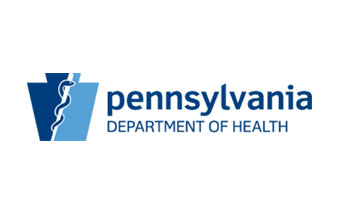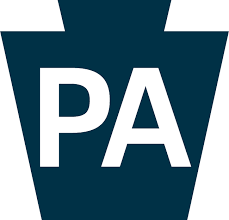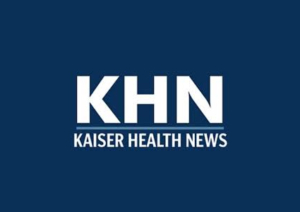PA Health Policy Update for May 3
The following is an update of selected state health policy developments in Pennsylvania from April 29 – May 3. (Some of the language used below is taken directly from state documents).
General Assembly
The state House of Representatives and Senate convened for voting session this week. Following is an overview of selected health care-related legislative activity that occurred.
- The House unanimously passed House Bill 2200, which makes certain changes to Pennsylvania statute that will enable the state to join, among others, the medical and nursing interstate licensure compacts. The bill will now be sent to the Senate.
- The House Human Services Committee met on Monday, April 29 and favorably reported, among other bills, House Bill 1783, which requires the development of opioid-related overdose public information, and House Bill 2137, which establishes the Maternal and Newborn Supply Kit Program. A recording of the meeting is viewable here.
- The House Health Committee met on Tuesday, April 30 and favorably reported the following bills.
-
- House Bill 2127, which requires clinicians to distribute information related to postpartum depression and conduct a postpartum screening for depression.
- House Bill 2208, which strengthens the Department of Health’s oversight of laboratories that test medical marijuana.
- Senate Bill 721, which establishes the Women, Infants and Children (WIC) State Advisory Board.
A recording of the meeting is viewable here.
- The House Aging & Older Adult Services Committee held an informational meeting on Tuesday, April 30 at 10:00 a.m. regarding local Area Agencies on Aging. A recording of the meeting is viewable here.
- The House Human Services Committee held an informational meeting on Wednesday, May 1 regarding performance-based contracting for the Department of Human Services’ Office of Developmental Programs. A recording of the meeting is viewable here.
The state House of Representatives and Senate will convene for voting session in Harrisburg next Monday, May 6 through Wednesday, May 8. Following is an overview of selected health care-related legislative activity currently scheduled next week.
- The House Insurance Committee will convene on Monday, May 6 at 10:00 a.m. in Room 60 of the East Wing to consider, among others, the following bills.
-
- House Bill 1021, which prohibits insurers from discriminating against individuals because they have an opioid reversal agent in their prescription profile.
- House Bill 1867, which prohibits health insurers from restricting the method of payment for in-network clinical services.
- House Bill 2138, which requires insurance coverage for blood pressure monitors for home use as a pregnancy-related service.
The meeting will be livestreamed here.
- The House Labor & Industry Committee will meet on Tuesday, May 7 at 9:30 a.m. in Room 523 of the Irvis Office Building to consider House Bill 2247, which requires the establishment of workplace violence prevention committees in health care facilities. Immediately following the voting meeting, the committee will hold an informational meeting on the nursing workforce crisis. The meeting will be livestreamed here.
Department of Health
The Department of Health has issued a Health Advisory (PA-HAN 746) with important information about Lyme Disease and other tickborne diseases in the commonwealth.
Department of Human Services
- The Department of Human Services (DHS) has issued a Medical Assistance Bulletin to advise providers of additions and updates to the Medical Assistance (MA) program fee schedule.
- DHS has provided final notice of its funding allocation for FY 2023-2024 for several classes of inpatient disproportionate share hospital (DSH) and supplemental payments to qualifying acute care general hospitals enrolled in the Medicaid program. Find additional information in this Pennsylvania Bulletin notice.
- DHS has announced the final annual case-mix per diem payment rates for FY 2023-2024 for non-public and county nursing facilities that participate in the Medicaid program. Find additional information in this Pennsylvania Bulletin notice.
- The Office of Mental Health and Substance Abuse Services (OMHSAS) has issued a bulletin regarding the removal of lifetime employment bans for individuals convicted of certain criminal offenses in the Older Adults Protective Services Act.
- DHS has announced it made certain health care-associated infections (HAI) payments. Find additional information in this Pennsylvania Bulletin notice.
- DHS has added information to its website about the Technology Assessment Group (TAG), which reviews requests for new and emerging technologies and recommends coverage decisions for the MA program. Find the TAG’s website here.
- DHS has announced the peer group, peer group medians, and peer group prices for non-public nursing facilities, including hospital-based nursing facilities and special rehabilitation facilities. Find additional information in this Pennsylvania Bulletin notice.
- DHS has published its report on Medicaid managed care enrollment in Pennsylvania for the month of March.
- DHS has released an updated Medicaid Managed Care Organization (MCO) Directory.
Revenue Collection Update
The Department of Revenue has announced that Pennsylvania collected $5.7 billion in General Fund revenue in April, which was $373.3 million, or 7.0 percent, more than anticipated. Fiscal year-to-date General Fund collections total $38.5 billion, which is $739.3 million, or 2.0 percent, above estimate.
Around the State
- The Tribune-Review reported about the many professional counselors that could be approved for associate licenses soon due to the implementation of Act 4, which establishes two new license types in Pennsylvania.
- Spotlight PA has published an article about the counties’ use of tens of millions of dollars in opioid settlement funds.
- A news segment published by KDKA highlighted the drug shortage challenges that health care providers and patients are currently confronting in Pennsylvania and across the country.





 Department of Health
Department of Health Around the State
Around the State The report, from the Institute for Medicaid Innovation, focuses on how state Medicaid programs, through alternative payment models and especially through managed care organizations, have implemented new programs designed to address social determinants of health such as inadequate social supports and housing, food insecurity, lack of transportation, and others. It also highlights federal regulations that facilitate the implementation of new ways to address social determinants of health and presents brief case studies in which states, state Medicaid programs, and Medicaid managed care organizations tackle social determinants of health.
The report, from the Institute for Medicaid Innovation, focuses on how state Medicaid programs, through alternative payment models and especially through managed care organizations, have implemented new programs designed to address social determinants of health such as inadequate social supports and housing, food insecurity, lack of transportation, and others. It also highlights federal regulations that facilitate the implementation of new ways to address social determinants of health and presents brief case studies in which states, state Medicaid programs, and Medicaid managed care organizations tackle social determinants of health. According to Kaiser, for-profit companies that sub-contract with Medicaid managed care organizations to review requests for services often deny care to Medicaid patients to save money for the MCOs that employ them and to benefit themselves financially.
According to Kaiser, for-profit companies that sub-contract with Medicaid managed care organizations to review requests for services often deny care to Medicaid patients to save money for the MCOs that employ them and to benefit themselves financially.

 MACPAC advises the administration, Congress, and the states on Medicaid and CHIP issues. It is a non-partisan agency of the legislative branch of government.
MACPAC advises the administration, Congress, and the states on Medicaid and CHIP issues. It is a non-partisan agency of the legislative branch of government.